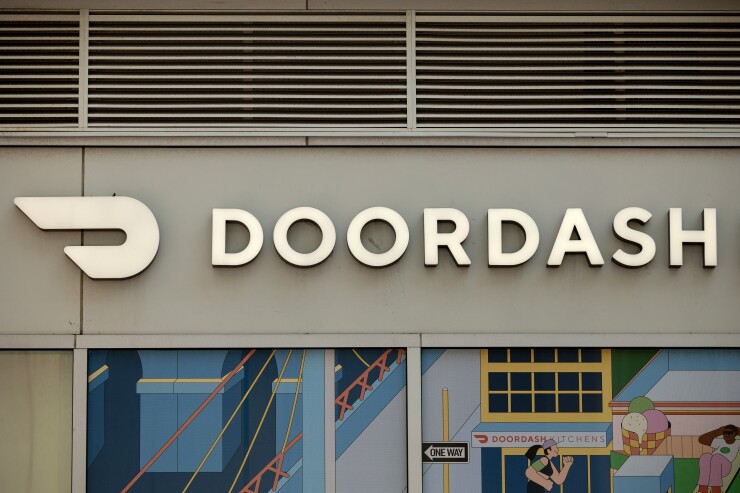
Americans would rather grocery shop from the comfort of their couch, so
Under the enhanced partnership, Chase Sapphire cardholders, and other eligible members, will receive new benefits for
Financial incentives tied to credit cards are attractive to consumers, providing an opportunity to keep consumers from seeking other payment options. Sixty-nine percent of consumers that increased their usage of card-linked offers in 2022 boosted their use further in 2023, the next 12 months, according to the
These mutually beneficial partnerships are a common strategy to drive card usage and attract new members, said Gareth Lodge, London-based principal analyst of payments at international research firm Celent.
"For card issuers, it's all about being top of wallet; the card that you reach for most," Lodge said. "The idea is that it is win-win. The cardholders will use the Chase card at DoorDash, as opposed to a different card at a different delivery service."
Chase declined to comment beyond what was issued in the joint press release, in which Dana Pouwels, head of strategic card partnerships at Chase, noted that DoorDash was the cardholder's exclusive grocery and restaurant delivery platform partner. A DoorDash spokesperson confirmed that "Chase is DoorDash's only consumer banking partner at this time."
Card issuers are seeking exclusive partnerships like this because they recognize consumers are disillusioned with traditional card benefits, like airline miles and cash back, said Erin McCune, San Francisco-based expert partner of payments at global consultancy Bain & Company.
Earlier this year, the Consumer Financial Protection Bureau
Difficulty accessing airline miles and cash back might be why cardholders are attracted to reward programs with linked offers. And with DoorDash, Chase tapped into a particularly high-demand niche: same-day delivery, McCune said.
The Covid-19 pandemic cemented consumer demand for the service; 80% of consumers expect online retailers to offer same-day delivery and 41% are willing to pay more for it, according to
"Chase is competing against other issuers for consumer attention," McCune said. "We know there's a lot of consumer demand for these products. If [the partnership is] exclusive, they're useful because there's only so many platforms like this."
DoorDash owns the highest share of the food-delivery market (67%), followed by Uber Eats (23%), according to
Partnering with the No. 1 card issuer in the U.S. gives DoorDash the chance to market directly to Chase's nearly 80 million members through the rewards program.
The two companies have been offering co-branded credit card rewards since 2020, back when restaurants were only offering to-go orders during the pandemic. In 2021,
Under the new expanded partnership with DoorDash, Chase members receive benefits that are specific to their credit card type. Chase Sapphire members receive $10 off their order twice a month and a $5 monthly voucher on grocery or other non-restaurant orders. Sapphire Preferred members receive a year of DashPass benefits and a $10 discount on one non-restaurant order each month. Both cardholders receive these benefits until 2027. Starting in 2025, Freedom and Slate cardholders receive six free months of DashPass and $10 off a non-restaurant order each quarter.
The Sapphire and Sapphire Preferred cards receive more benefits because they have higher APR rates and maintenance fees than Freedom and Slate cards, which Lodge said is a strategic choice that benefits both Chase and DoorDash.
"Rewards and incentives still remain an important tool for driving usage on cards, especially premium ones. And most apps want affluent users who use their cards frequently," Lodge said.






